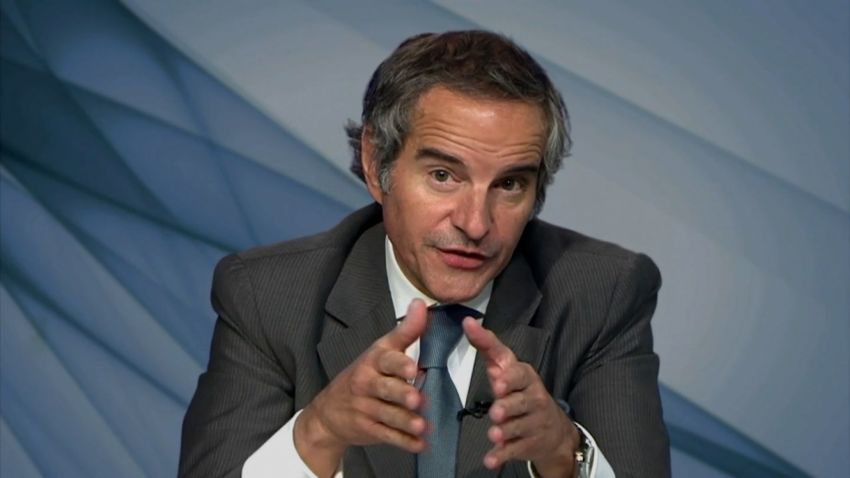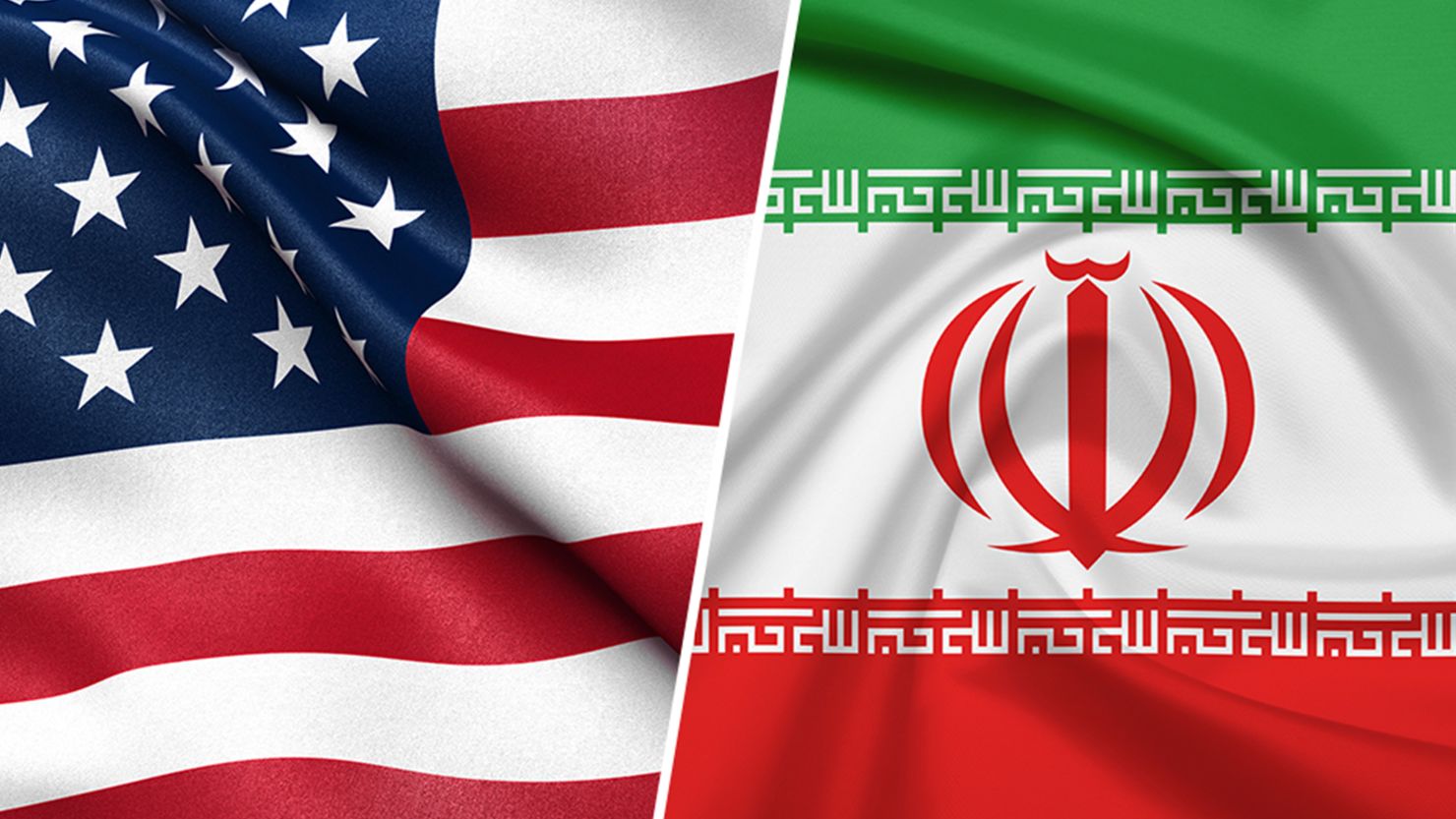US Secretary of State Tony Blinken said Thursday that it will “further complicate” efforts to salvage the 2015 Iran nuclear deal if Iran removes cameras that monitor its nuclear program and could lead to “a deepening nuclear crisis and further economic and political isolation for Iran.”
The head of the International Atomic Energy Agency said earlier Thursday that Iran will “basically” remove all cameras installed under the 2015 nuclear deal, after the country was censured earlier this week by the IAEA’s Board of Governors for not fully cooperating with the nuclear watchdog.
In a statement, Blinken accused Iran of threatening “further nuclear provocations” and making “further reductions of transparency.”
The top US diplomat called such steps “counterproductive and would further complicate our efforts to return to full implementation” of the 2015 nuclear deal, known as the Joint Comprehensive Plan of Action (JCPOA).
“The only outcome of such a path will be a deepening nuclear crisis and further economic and political isolation for Iran,” he said. “We continue to press Iran to choose diplomacy and de-escalation instead.”
Iran’s move to remove the cameras could jeopardize the 2015 nuclear deal, known as the Joint Comprehensive Plan of Action (JCPOA), which put verifiable limits on Iran’s nuclear program designed to prevent the country from obtaining a nuclear weapon.
The head of the IAEA said earlier Thursday that Iran will “basically” remove all cameras installed under the JCPOA, while warning that the move could deal a “fatal blow” to the pact.
“The idea is that whatever was beyond the comprehensive Safeguards Agreement will be removed, this is the principle, we now have to see how it’s operated,” IAEA Director General Rafael Grossi told journalists at the quarterly Board of Governors meeting in Vienna.
Biden administration officials, however, did not go that far.
“This is very unwelcome and will make everything more difficult. But we would not go as far as to say this is the beginning of the end,” a senior administration official told CNN.
A State Department spokesperson noted to CNN that Iran has not yet taken the steps to remove the 27 cameras that are used to monitor nuclear facilities. But that if Iran does follow through, it will create complications for returning to the deal, they said.
Grossi told CNN that it is “technically impossible” to have a nuclear agreement with Iran if it curtails access to its facilities by having deactivated the cameras.
“We have a number of means to verify Iran’s activities in a number of areas related to the JCPOA. When Iran starts curtailing these accesses, at some point, if the JCPOA was to be revived…the participants need to have a baseline, a necessary amount to know what it is that Iran has or (doesn’t have), in order for us to verify,” he said in an interview with CNN’s Becky Anderson on Thursday. “If you don’t have that, it’s technically impossible to have an agreement.”

Talks to revive the deal – abandoned by the US under the Trump administration – broke off in March without an agreement. The Biden administration, however, is still hoping to salvage the 2015 deal.
While Blinken on Thursday blamed Iran for the fact that there is not yet an agreement to revive the deal, he continued to express an openness to salvaging the nuclear agreement.
“The United States remains committed to a mutual return to full implementation of the JCPOA. We are prepared to conclude a deal on the basis of the understandings we negotiated with our European Allies in Vienna over many months. Such a deal has been available since March, but we can only conclude negotiations and implement it if Iran drops its additional demands that are extraneous to the JCPOA,” Binken said.
At the press conference Thursday, Grossi said the IAEA would not be able to give JCPOA signatories accurate details on Iran’s advancements if the nuclear deal is not revived within the next “three to four weeks.”
“We are at a very tense situation with the negotiations on the revival of the JCPOA,” he said.
The cameras are spread out across nuclear-related facilities across Iran, including Natanz, Isfahan and Tehran, Grossi said.
“These cameras are placed in places that are related to centrifuge part assembly production,” Grossi added in reference to the removed surveillance equipment.
The move is meant to impair the IAEA from applying its “continuity of knowledge” – a principle used by the nuclear watchdog to prevent undetected access to nuclear material or undeclared operations.
“The window of opportunity is very small,” Grossi said.
The Atomic Energy Organization of Iran on Wednesday said it deactivated two IAEA cameras fitted to monitor activities inside a nuclear facility, according to state-run news outlet IRNA.
The Iranian organization said that “more than 80%” of the IAEA’s cameras will continue to operate normally as they fall within the “safeguards agreement,” but that the two deactivated cameras were installed “beyond the safeguards agreement,” IRNA reported.
On Wednesday, the US said it views the issue of Iran’s compliance with the IAEA separately from the negotiations over a return to the JCPOA.
“But there is, in our view, a deal on the table that would effectuate a compliance-for-compliance return to the JCPOA without dealing with extraneous issues. That deal is available to Iran. They should take it. If they don’t, that’s on them,” Sullivan told reporters, when asked whether Iran deactivating the two IAEA cameras would impact resuming talks over a return to the nuclear deal.
Iran censured
Iran suggested that the move to deactivate the cameras was reciprocal to a resolution submitted this week by the US, the UK, France and Germany, censuring Tehran for failing to fully cooperate with the IAEA. The resolution was passed Wednesday by the IAEA’s Board of Governors member states.
Following the resolution’s passage, the US and the European countries called on Iran to comply with the IAEA and clarify and resolve issues “without further delay.”
Iran, however, condemned the resolution calling it a “political action, incorrect and unconstructive.”
“The adoption of the resolution will only weaken the process of cooperation and interaction of the Islamic Republic of Iran with the IAEA,” the Iranian Foreign Ministry said in a statement Thursday.
In a report provided to member states last week, the IAEA found that Iran has increased its enriched uranium stockpile and hasn’t provided answers for unexplained nuclear activities at three undeclared sites.
Grossi on Monday also told the board’s member states that Iran is only a few weeks away from having a “significant quantity of enriched uranium.”
The UK, France and Germany warned on Tuesday that Iran’s nuclear program is “now more advanced than at any point in the past” and threatens “international security and risks undermining the global nonproliferation regime.”
The US relies on the IAEA to monitor Iran’s nuclear program, but the US also collects intelligence on Iran’s capabilities.
The US State Department spokesperson told CNN, “If implemented, the escalatory steps Iran has threatened would undermine the IAEA’s ability to verify Iran’s JCPOA-related declarations, using the cameras and other monitoring equipment installed for that purpose, about some of the nuclear activities they have undertaken since February 2021.”
“That would mean that Iran would need to provide whatever information and transparency the IAEA deems necessary to allow it to verify Iran’s declarations as part of any negotiated return to full implementation of the JCPOA. This would obviously complicate Iran’s stated policy goal of a mutual return to full implementation of the deal,” they added.
US Sen. Bob Menendez, the chair of the Senate Foreign Relations Committee, on Wednesday commended the IAEA Board of Governors for passing the resolution, saying it is “high time” they “publicly hold Iran to account for its failure to provide credible and timely cooperation with the IAEA’s inquiry into undeclared nuclear materials.”
“Iran now has enough uranium to produce a nuclear weapon. This latest milestone returns us to a familiar question: At what point will the Administration acknowledge that Iran’s nuclear advances make a return to the 2015 JCPOA not in the United States’ strategic interest?” he said in a statement.
But for months the Biden administration has continued to say that Iran is a few weeks away from having enough fissile material to create a nuclear bomb, and they maintained that view on Thursday.
Henry Rome, who covers Middle East politics as deputy head of research at the Eurasia Group, told CNN that it’s “very tough to continue to say that a deal is really viable at this stage as Iran follows through with these severe steps.”
“There are two dynamics here: first, to get back into the deal you need to have a baseline of what Iran has and where Iran has it and by removing these cameras it reduces your knowledge about exactly that question. That creates a lot of doubt and doubt is not conducive to an already quite controversial proposition,” he said.
“And then the broader point is that the severe Iranian reaction says something about where they are thinking about a deal. Today is the day the music died on the idea that Iran was trying to preserve some space for a deal,” he said, adding that “there is still a pathway” but calling it a “big blow to the idea that the Iranians are really committed to reviving the deal.”
CNN’s Ramin Mostaghim, Zahid Mahmood, Teele Rebane and Zeena Saifi contributed to this report.



